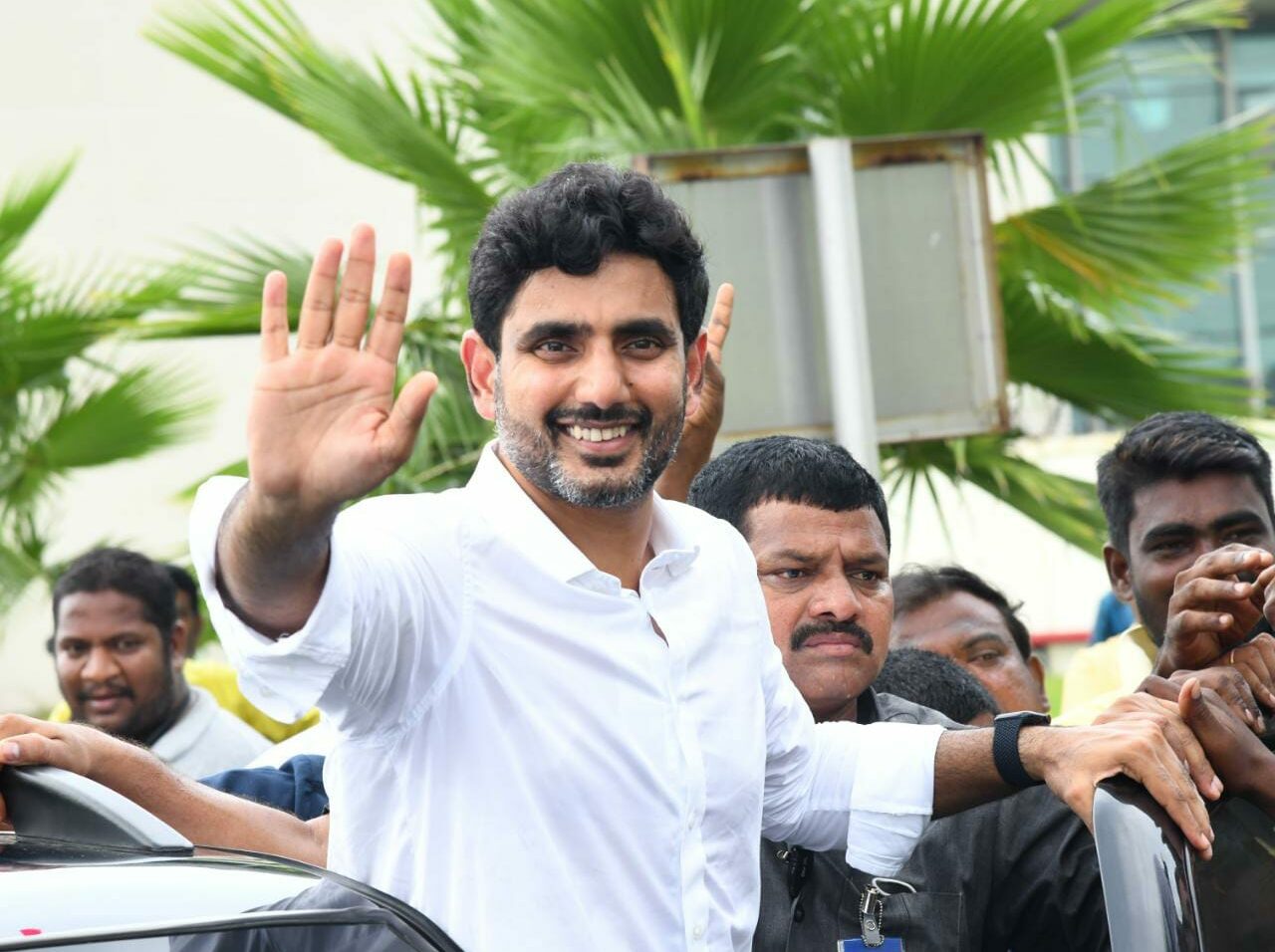Court also posted the pleas of ex-minister P Narayana for anticipatory bail and dismissal of IRR case against him to 16 Oct.

TDP general secretary Nara Lokesh. (Supplied)
The Andhra Pradesh High Court on Tuesday, 3 October, asked TDP national general secretary Nara Lokesh to appear before the Andhra Pradesh Crime Investigation Department (CID) at its office near Vijayawada on 10 October in connection with the Amaravati Inner Ring Road (IRR) case.
The court gave the order while responding to a lunch motion petition filed by Lokesh — son of former chief minister and TDP chief N Chandrababu Naidu — strongly opposing a notice issued to him by the CID under Section 41A of the CrPc asking him to appear before it on 4 October at 10 am.
Following the CID’s direction to Lokesh in the notice to submit bank documents, his lawyers said the former was a shareholder in Heritage Company.
“There is a prescribed procedure to submit bank details and it is not advisable on the part of CID to seek bank details,” they said. In response, the prosecution said the CID would not exert pressure on Lokesh to furnish the documents.
On hearing arguments of both prosecution and defence lawyers, the court asked Lokesh to appear before the CID on 10 October.
On 30 September, a CID team went to New Delhi and issued a notice to Lokesh — who is Accused No 14 (A14) in the case — under Section 411A CrPc asking him to before it on 4 October.
In a related development, the court postponed the hearing of petitions filed by the former Andhra Pradesh Municipal Administration Minister P Narayana seeking to dismiss the IRR case registered by the CID against him and his anticipatory bail plea to 16 October.
The court also extended the previous orders preventing the arrest of Narayana for two more weeks. Narayana — who is Accused No 2 (A2) in the IRR case — was supposed to appear before the CID along with Lokesh on 4 October in the same case.
In a lunch motion petition filed in the court, Narayana urged the court to issue instructions to CID to question him at his residence as he could not appear before it in Vijayawada due to health reasons.
According to CID, Lokesh played a crucial role in trying to make changes to the alignment of IRR. He was also facing allegations of helping industrialist Lingamaneni Ramesh’s family in the capital region. Ramesh is A3 in this case.
The names of TDP national president Chandrababu Naidu and Narayana along with other private individuals and companies were also mentioned in the case.
Chandrababu Naidu and Narayana’s names were included in the case as they played a key role in designing the master plan and accordingly trying to make changes to the alignment of the inner ring road.
Meanwhile, The Supreme Court on Tuesday directed the Andhra Pradesh government to file a compilation of all the documents/material that were presented before the state high court while hearing Naidu’s plea for quashing the FIR on the alleged ₹370 crore Andhra Pradesh State Skill Development Corporation (APSSDC) scam.
The court posted the matter for hearing on 9 October.
Based on a complaint lodged by the YSRCP MLA A Ramakrishna Reddy, the CID registered the case against them in 2022 for allegedly committing illegal activities within a few months after coming to power in 2014, pertaining to the capital city of Amaravati.
Reddy alleged that the then ruling party leaders including Naidu, Narayana and others designed the master plan for the Andhra Pradesh Capital and alignment of the IRR along with connecting arterial roads to cause wrongful gain to some selected persons and companies associated with the decision-making authorities to get benefits thereby causing loss to public and the government exchequer.
The case was booked under Section 120B (criminal conspiracy) and 420 (cheating) of the Indian Penal Code (IPC) and also under provisions of the Prevention of Corruption Act 1988.

Jul 26, 2024

Jul 26, 2024

Jul 26, 2024

Jul 25, 2024

Jul 24, 2024

Jul 24, 2024